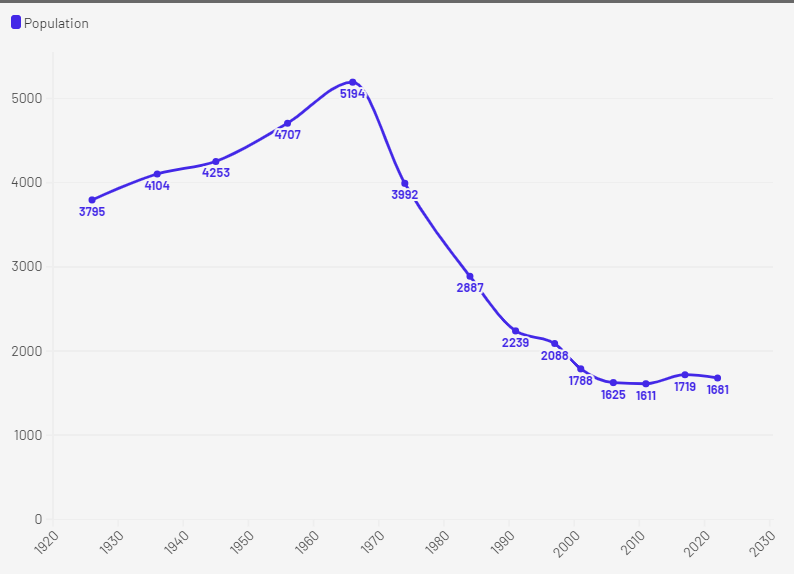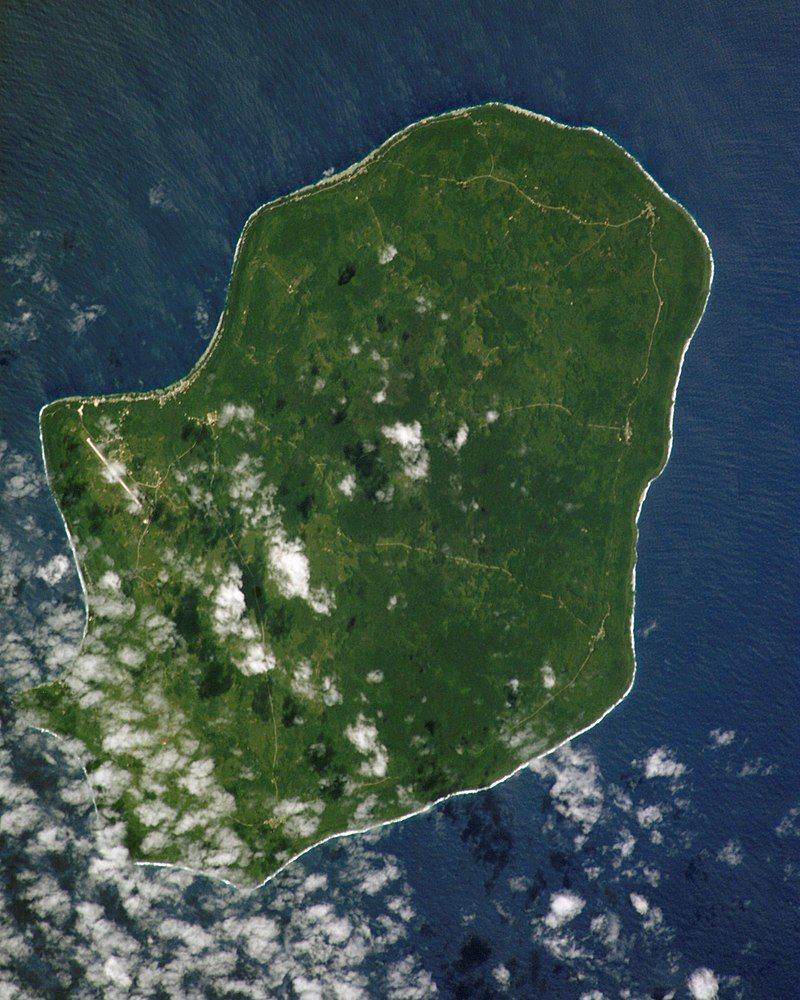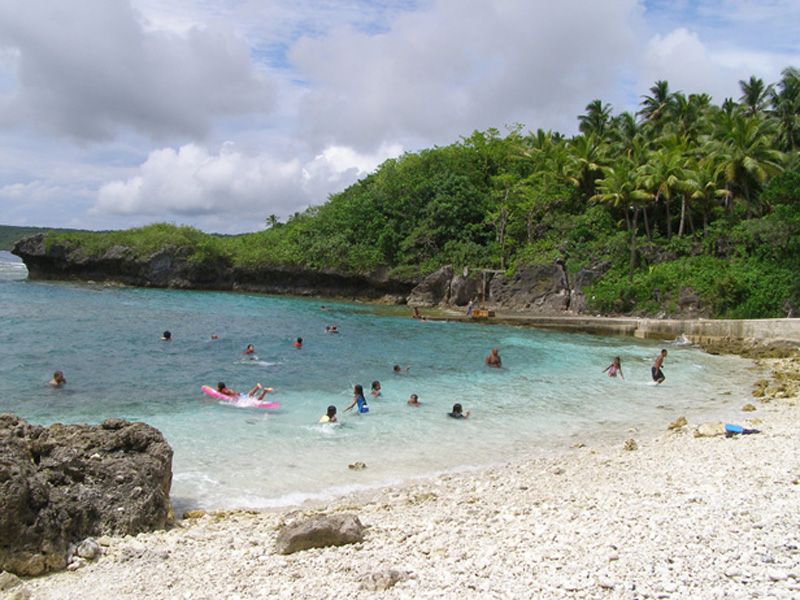

Niue politicians from left: Hima Douglas, Esa Mona Ainu'u, PM Dalton Tagelagi and Rhonda Tiakia Tomailuga
Online
‘Go make babies’: Niue PM’s solution to depopulation
Niue ministers’ startling and logical responses to why many are flying out on a one-way ticket.


‘They’ve said I’ve given their kids confidence to play tennis’


An artist’s modern touch on tradition and the Tongan nose flute


‘They’ve said I’ve given their kids confidence to play tennis’


An artist’s modern touch on tradition and the Tongan nose flute
It’s a modern day Exodus. Slowly but surely, whole families at a time are leaving Niue, often looking to New Zealand for education and employment opportunities.
Niue’s ministers face an imminent challenge: how to tackle depopulation without compromising their values and cherished way of life.
“Where’s all the youth? Go make babies”, jokes Dalton Tagelagi, Niue’s Prime Minister and father of four. “I think the youth today are slow in that area.”
The last census showed 1681 people in 2022, with 1564 saying Niue was their usual place of residence. This is an overall drop of 38 people from 2017, another chunk of a downward trend.
Speaking on the Pacific Islands News Association panel, Tagelagi said the government’s working on development opportunities and lending restrictions to promote investment, adding they could literally see growth happening around them.
“We can see there's about eight new houses. These new families are young professionals because they are in their early 30s and are building houses.”

While villages such as Toi swelled by 15 people (88 per cent), Mutalau lost 21 people and Vaiea 22 (21 per cent).
Lakepa MP Rhonda Tiakia Tomailuga took a hardline stance to those who left.
“Ko e tau toa ni ne nonofo i Niue, only the warriors live in Niue.
“We can't force our people to come home and stay home, it has to come from within.
“To live here, you need to be able to accept everything that comes with living in our isolated community. You will find that every Niuean person, they don't have one job, they have five, 10 jobs, we do everything.”
Natural Resources Minister Esa Mona Ainu’u understood this statement first hand, and said traditional ways of working and serving the community are done without notions of status.
“As a minister during the day and a bathroom cleaner in the evening and a chef and everything else in the community, it really is not a challenge.
“I take pride in my culture and traditions that my grandparents taught me when I came to be, that as Niuean you do what you can do, and if it's necessary that you take off your high heels and put on your selepes to get it done, you have to get it done.”

NASA astronaut image of Niue Island in the Pacific Ocean in 2002. Photo/NASA
Background
Niue’s population peaked at 5194 in 1966, but many at the time had lived through the devastation caused by cyclones in 1959 and 1960, which added fervour to a migration exit wave.
“Those that left here, they went and helped New Zealand in order for New Zealand to help us,” Tagelagi said.
In the 1960s, Niue was coming of age, establishing a Legislative Assembly and court system, before becoming self governing in 1974 and electing Robert Rex as the first president the following year.
However, New Zealand was experiencing an economic boom and looking to its Pacific neighbours to fill gaps in the labour market. From 1971-1974 almost 20 per cent of Niue’s population left.
Niue Speaker of the assembly, Hima Douglas, said it took a special kind of person to live in Niue, but he was hesitant to leave the door completely open to those who were in limbo.
“If we open up the country, all hell is going to break loose, but that's the alternative that we have to consider.
“I think it's like all of Polynesia, when you leave your island and migrate elsewhere, you always have a part of yourself remaining at home.
“Sooner or later, our people living in New Zealand have got to let you go, let the people who live here get on with developing the island. They're all free to come back, but in saying that, you have to accept also that we cannot do it with the numbers that we have at the moment.”

Avatele Beach, 2008. Photo/CC BY-SA 3.0
Tomailuga had a message for Niueans who had gone overseas and hadn’t returned.
“It would become hard to come to Niue if you have no home to go to. It will be hard to start.
It will be hard for you to come back and rebuild. The weeds have come up and grown over your home.
“I say that with so much love for our diaspora because they help build Niue, they send money home to families to help continue to build Niue.”
A migration wave of remote workers
The census showed almost a quarter of the population was born in New Zealand.
Douglas said they would continue to encourage people to return to their roots.
“Although the bridge is there, very few, not too many people have decided to use that bridge.
“Those who have returned to the island, some of them have managed to reintegrate back to the society, quite a few have struggled and have had to return to New Zealand.
“But I think a promising development is that, we're now beginning to see more and more of our people coming back and building, or at least trying to resurrect the old family homesteads.”
Tomailuga said digital technology and the option of remote work had been a “blessing” for Niue.
“We've seen a lot of young Niueans come home, working here three months, they go back, they come back, but it's that flexibility now that they can [take advantage of] the opportunities that they are afforded, that they can come home to Niue and help build Niue at the same time.”